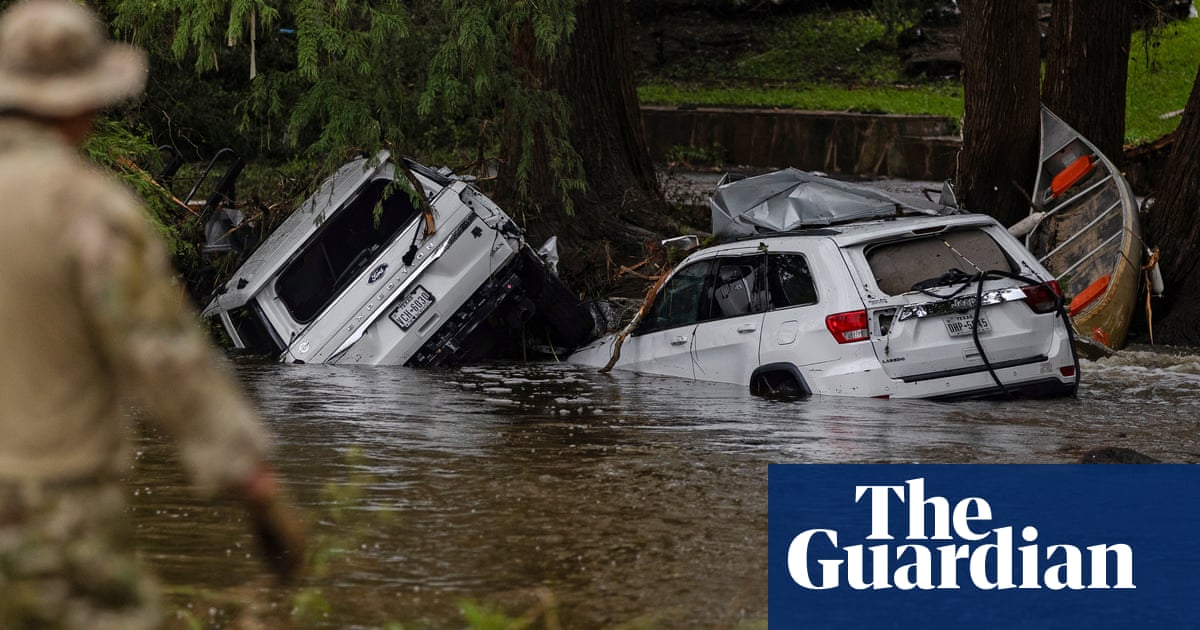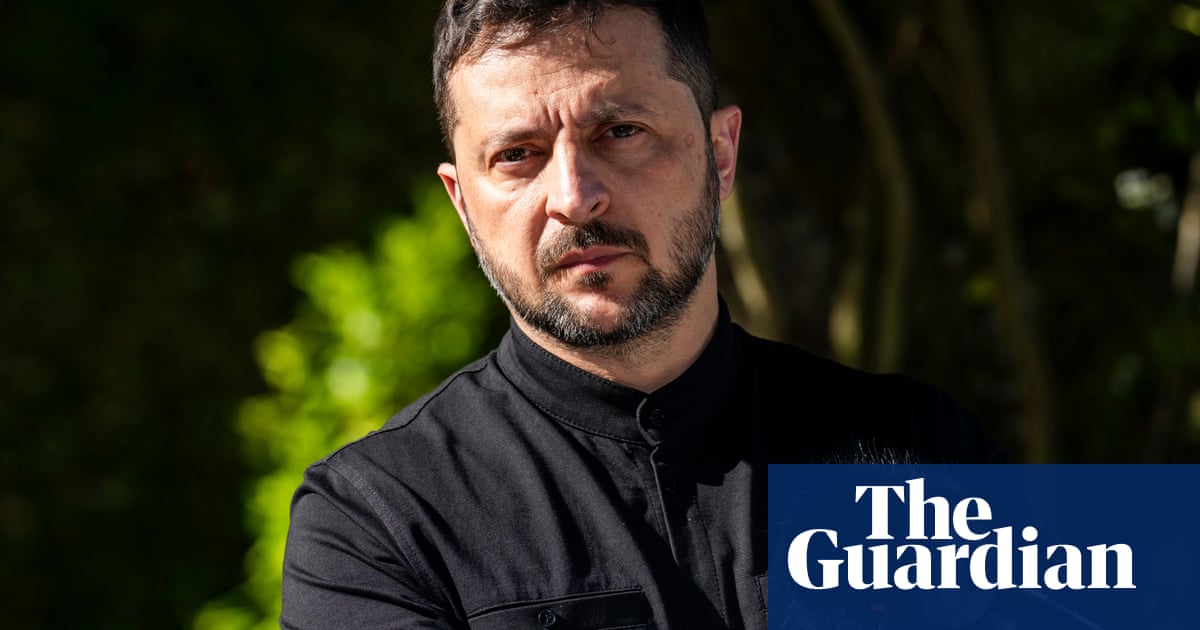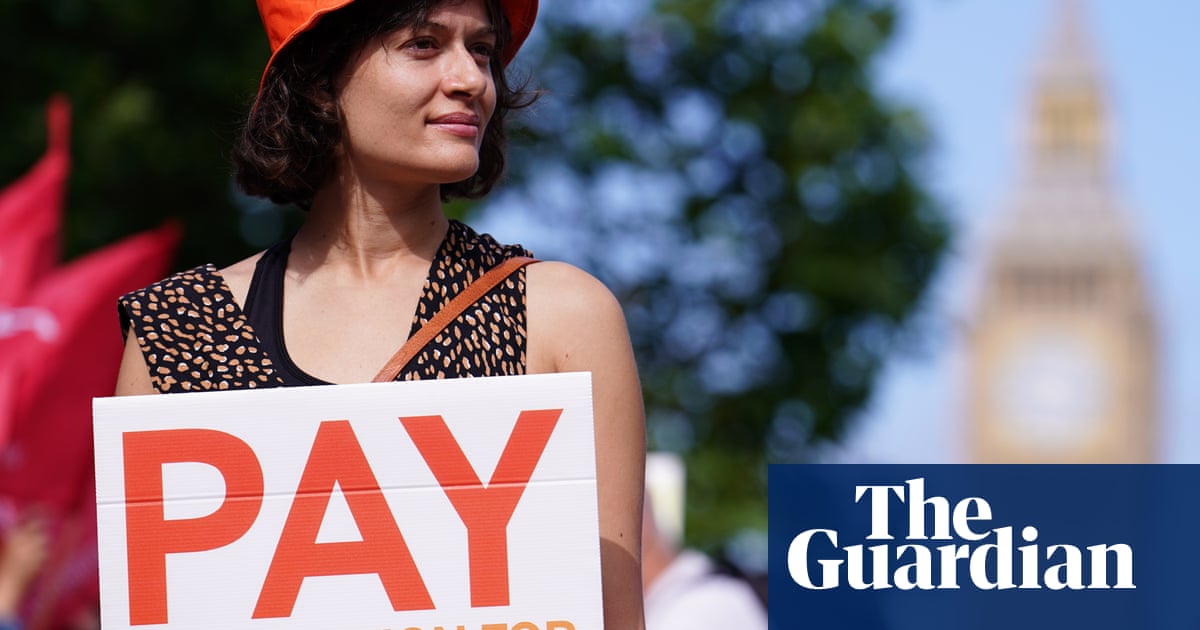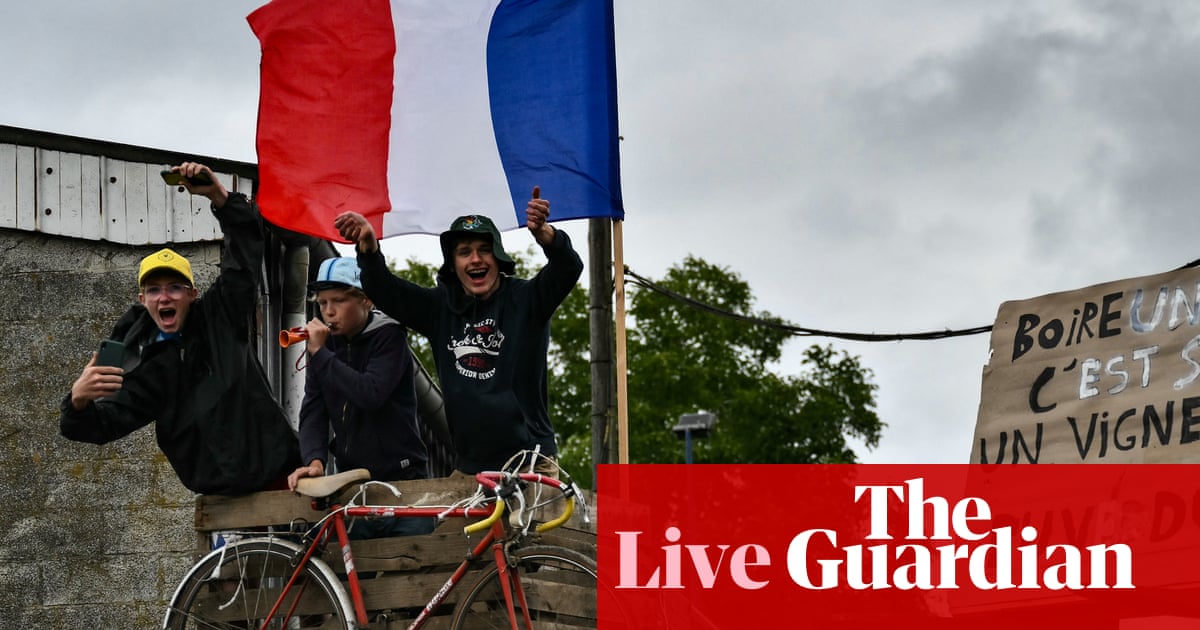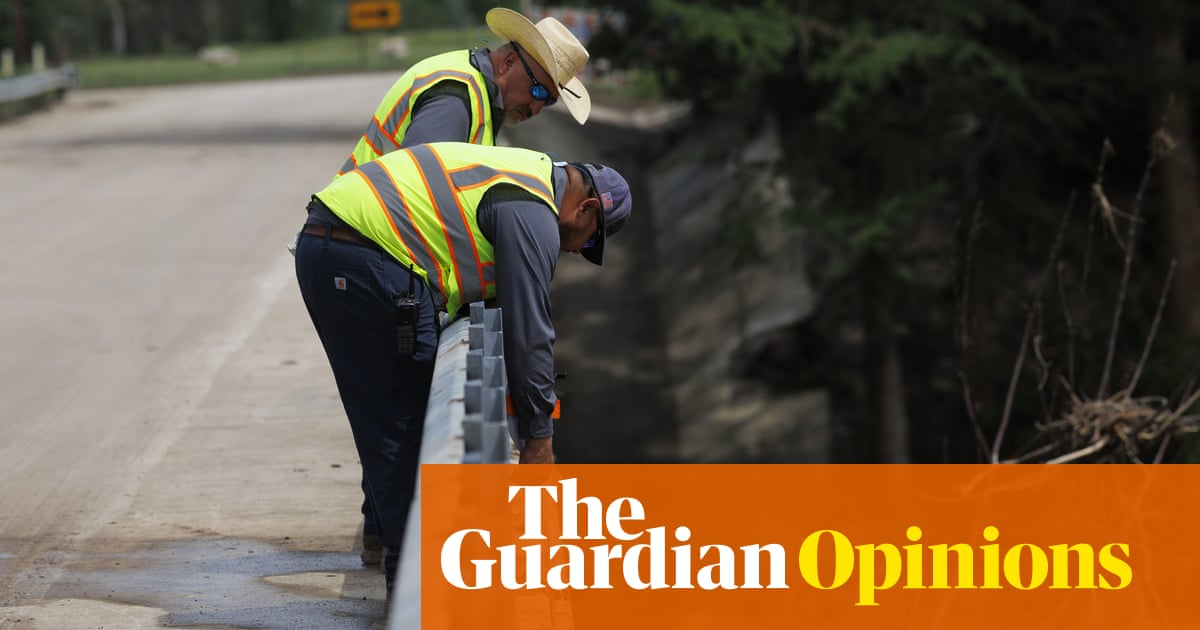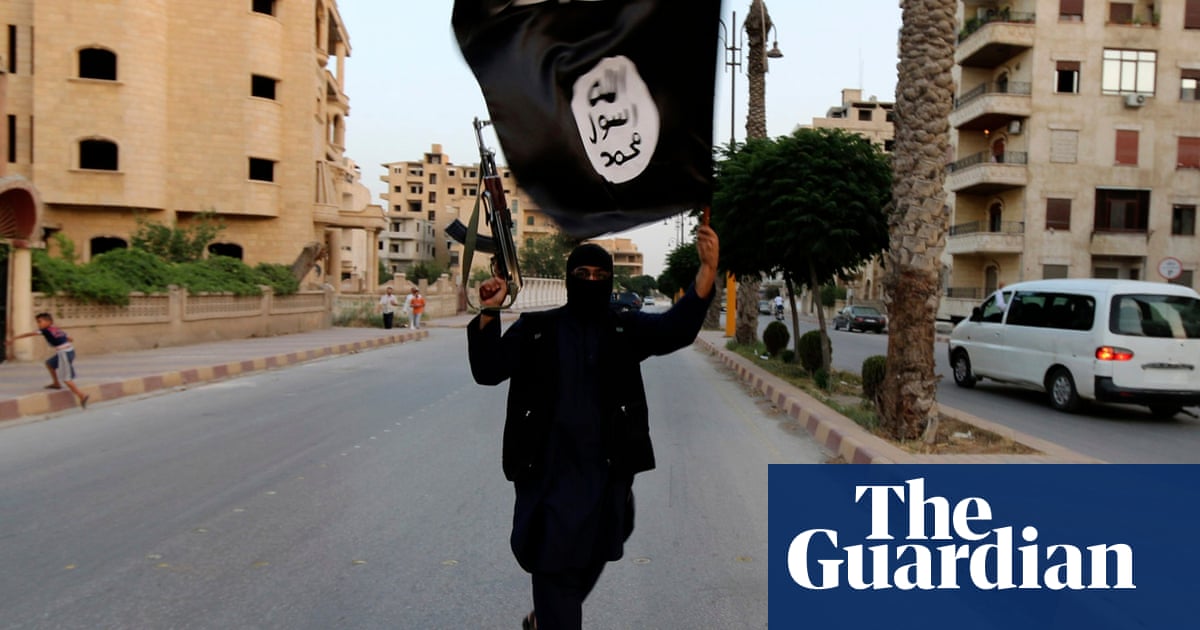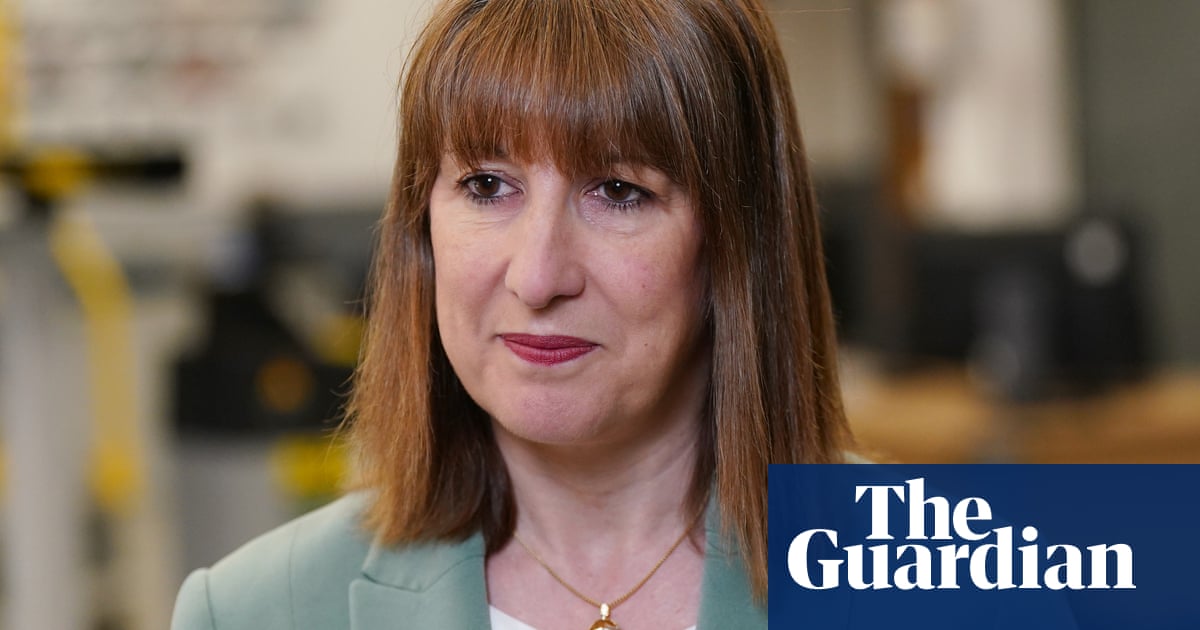Key events Show key events only Please turn on JavaScript to use this feature
Here are some images coming to us over the wires:
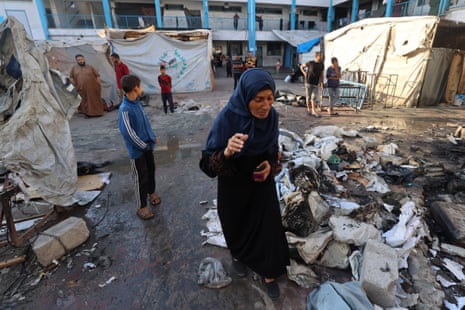
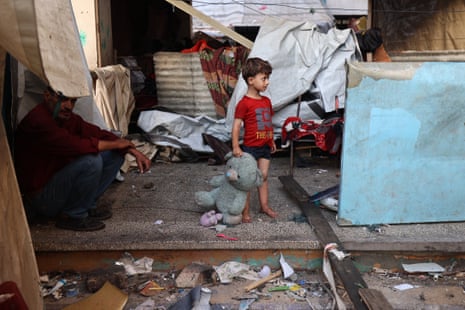
A third day of indirect negotiations on a Gaza ceasefire between Israel and Hamas, with a focus on withdrawal and aid, began in Doha today (8 July).
“Indirect negotiations are continuing this morning in Doha, with a fourth meeting being held… the discussions are still focused on the mechanisms for implementation, particularly the clauses related to withdrawal and humanitarian aid,” a Palestinian source tells AFP.

Gustavo Petro
In a new opinion piece for the Guardian, president of Colombia Gustavo Petro argues that governments have a duty to “stand up to Israel”, and criticises “passive” attitudes.
“If we fail to act now, we not only betray the Palestinian people, we become complicit in the atrocities committed by Netanyahu’s government,” he wrote. “Some governments have already stepped up. My government suspended coal exports to Israel, for example, recognising that economic ties cannot be divorced from moral responsibilities. South Africa, meanwhile, has taken Israel to the world’s highest court.
“And Malaysia has banned all Israeli-flagged cargo ships from docking at its ports. Without such decisive action, we risk turning the multilateral system into a talking shop, stripping the legal order of its remaining protections for small, developing and less privileged nations – from west Asia to right here in Latin America.”
The piece concludes that without decisive action, there is a risk of stripping the global legal order of its remaining protections for less-privileged nations.
He wrote: “For the billions of people in the global south who rely on international law for protection, the stakes could not be higher. The Palestinian people deserve justice. The moment demands courage. History will judge us harshly if we fail to answer its call.”
Opening summary
Hello and welcome to the Guardian’s continuing coverage of the crisis in the Middle East.
Israel’s defence minister has laid out plans to force all Palestinians in Gaza into a camp on the ruins of Rafah, in a scheme that legal experts and academics described as a blueprint for crimes against humanity.
As reported by the Guardian’s Emma Graham-Harrison, Israel Katz said he has ordered Israel’s military to prepare for establishing a camp, which he called a “humanitarian city”, on the ruins of the city of Rafah. It would involve Palestinians going through “security screening” before entering, and once inside would not be allowed to leave.
Eventually, the entire population of Gaza would be housed there, and Israel aims to implement “the emigration plan, which will happen”, Haaretz newspaper reported.
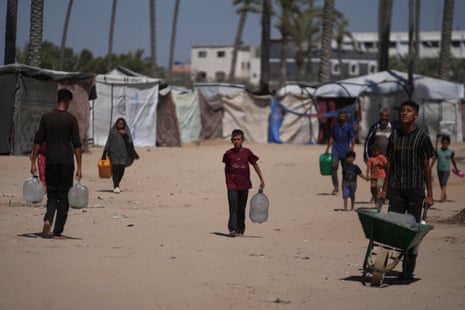
Elsewhere, Iran’s government has said at least 1,060 people have been killed in the war with Israel. Officials say that this figure could rise to 1,100, given how badly some people are wounded.
This figure comes from Saeed Ohadi, the head of Iran’s Foundation of Martyrs and Veterans Affairs, who spoke in a televised interview on late Monday (7 July) – according to AP News.
As the outlet reports, Iran downplayed the effects of Israel’s 12-day bombardment of the country, which decimated its air defences, destroyed military sites and damaged its nuclear facilities. However, since a ceasefire agreement was reached on 24 June, Iran slowly has been acknowledging the breadth of the destruction, though it still has not said how much military material it lost.
In other developments:
-
Israel’s far-right national security minister Itamar Ben Gvir calls on prime minister Benjamin Netanyahu to withdraw from talks with Hamas. As Times of Israel reports, he said: “We should not negotiate with those who kill our soldiers. They should be crushed to pieces, starved to death, and not resuscitated with humanitarian aid that gives them oxygen.”
-
The Israeli military says five soldiers were killed in an attack in northern Gaza, while health officials in the Palestinian territory say 18 people were killed in Israeli strikes.

 3 hours ago
2
3 hours ago
2


